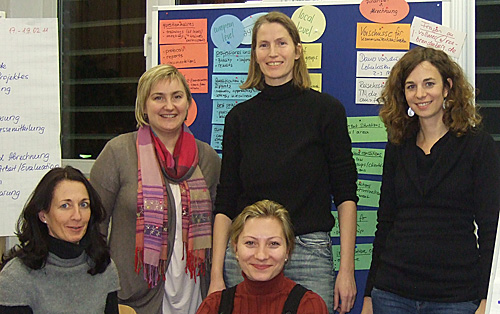Anti-Discrimination and Empowerment in Brandenburg, Lower Silesia and Andalusia
1st January 2011 – 31st December 2012
Background
In Brandenburg, Lower Silesia and Andalusia as well as elsewhere, migrants and other social groups experience exclusion and unequal treatment in everyday life. At the same time all three regions present different approaches in order to counteract discrimination and to empower the people affected. With the implementation of the EU Equal Treatment Directives from 2000 the anti-discrimination work in Germany, Poland and Spain has received new significance also in the public perception. Apart from the accompaniment and support of the affected people it is necessary to sensitise citizens as well as organisations and institutions for the issue of discrimination.
Our goals
- professional exchange regarding the approaches of anti-discrimination work and empowerment strategies that are practised in the three European partner regions
- adjustment and establishment of the approaches within each of the partner countries
- qualification of disseminators who are active in the field of anti-discrimination work
- development of networking and cooperative relations between the project’s participants
- evaluation and distribution of the project results
Implementation and offers
- an international cycle of courses for the qualification of disseminators in the field of anti-discrimination and integration work
- coaching and advisory service for participants
- regional training and seminars on approaches of anti-discrimination work and empowerment strategies, e.g. for educational organisations or administrations
- compilation of a brochure on anti-discrimination work and empowerment strategies
Our Approaches
- we operate with different approaches from the anti-discrimination and empowerment work and apart from the horizontal approach we consider various discrimination features (e.g. ethnic origin, gender, age, disability…)
- within our work we resort to participatory and process-orientated methods of education, which are linked to the individual’s own experiences, actions and needs.
- the methods facilitate an active and reflective learning and are aimed at the appreciation and acceptance of diversity and equal opportunities of participation.
Who we are
Within the framework of this project we work in an international team of professionals from the RAA Brandenburg in Germany, the SZKOŁA WYŻSZA PSYCHOLOGII SPOŁECZNEJ (Warsaw School of Social Sciences and Humanities) in Poland and the association Intercultural Life in Spain.

The project team at the kick-off meeting (from left to right): Angela Fleischer-Wetzel, Manuela Pliżga-Jonarska, Katrin Alban, Dina Ulrich, Julia Vollmer